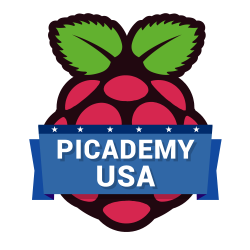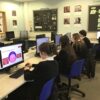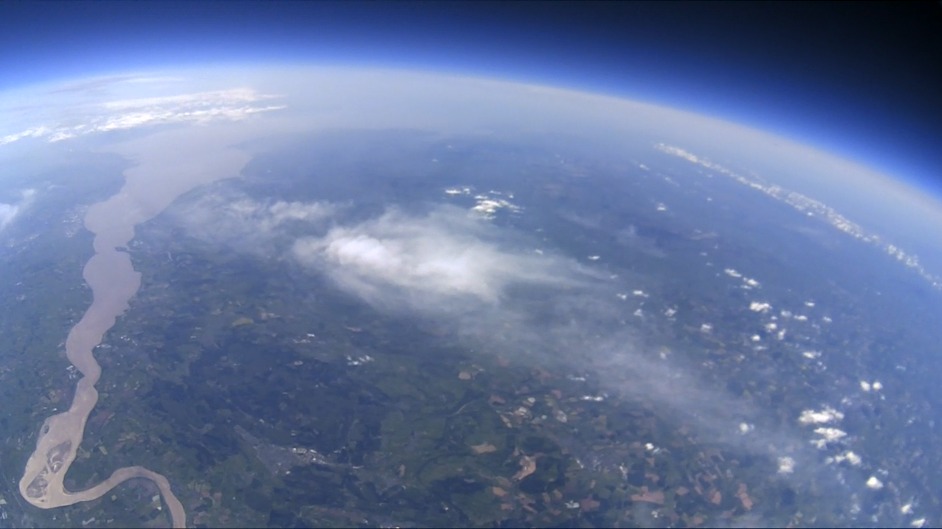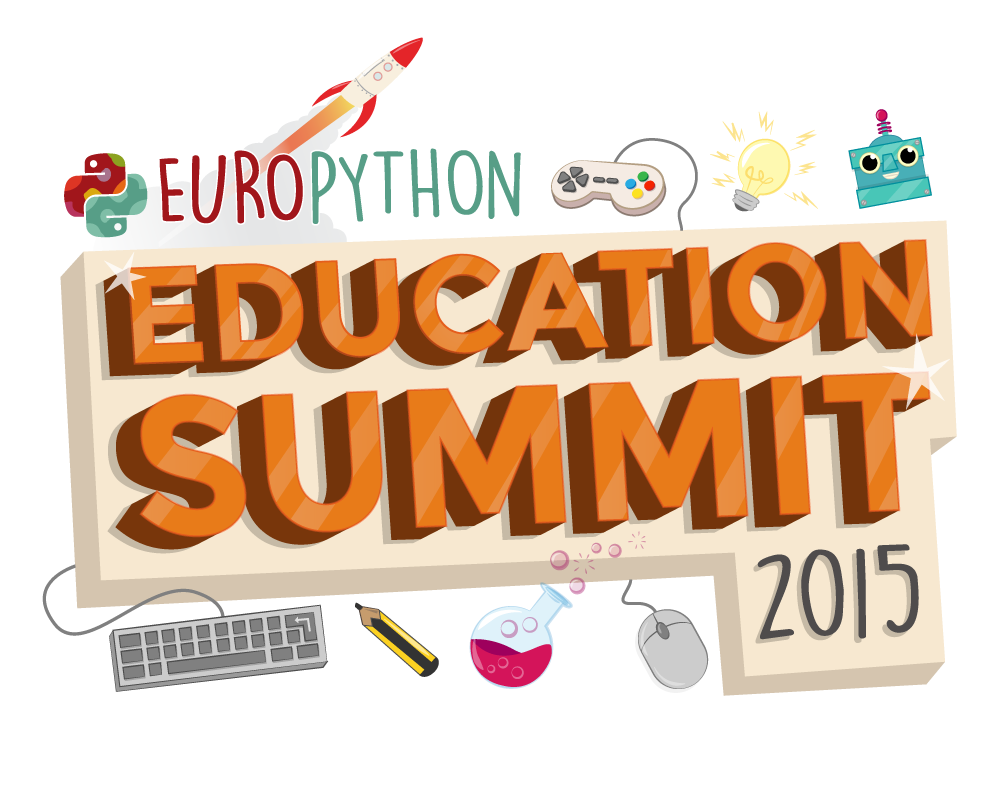Announcing Picademy USA
 I’m often asked when Picademy, our teacher professional development program, is coming to the United States. It’s been an incredible success within the UK and there’s clearly huge demand for it within the US. Today, we’re happy to announce a new partnership with the Computer History Museum to launch a pilot of Picademy in the United States. Located in Mountain View, California, The Computer History Museum makes an incredible partner and we’re excited to incorporate their educational content into the program.
I’m often asked when Picademy, our teacher professional development program, is coming to the United States. It’s been an incredible success within the UK and there’s clearly huge demand for it within the US. Today, we’re happy to announce a new partnership with the Computer History Museum to launch a pilot of Picademy in the United States. Located in Mountain View, California, The Computer History Museum makes an incredible partner and we’re excited to incorporate their educational content into the program.
We’re piloting Picademy USA with 4 sessions starting in early 2016. Our goal is to give 100 US-based educators free, hands-on experience with Raspberry Pi and induct them into a growing group of Raspberry Pi Certified Educators worldwide. The first Picademy in the US will take place at The Computer History Museum. Exact dates and locations for the workshops are being confirmed. To express interest in an upcoming Picademy, please complete this form. It will help us get a sense of where in the US there’s demand for professional development and you’ll be signed up to receive updates when venues and dates are confirmed.
We’re especially proud to announce this pilot in response to President Obama’s call to action to create a Nation of Makers. Since a major focus of this call to action is in the realm of STEM education, it was a natural fit for Picademy to be our commitment to supporting efforts to use computers in the classroom for tinkering, coding, and project-based learning. I’ll be with Computer History Museum’s Kate McGregor at the White House for a kick off event this morning. Keep an eye on @Raspberry_Pi for ongoing updates and check back here later in the day for photos from that event.
Click here to express interest in Picademy USA and to find out more about the program.
We're at the @WhiteHouse today for the kick off of Maker Week and the launch of Picademy USA! #NationofMakers pic.twitter.com/DGV1jW89My
— Raspberry Pi (@Raspberry_Pi) June 12, 2015
.@whitehouseostp CTO @smithmegan holds a Raspberry Pi at the White House #weekofmaking launch event!#NationofMakers pic.twitter.com/qt2UK7drum
— Raspberry Pi (@Raspberry_Pi) June 12, 2015
Our very own @KatieMcGregor @WhiteHouse with @MattRichardson for #NationofMakers to announce Picademy USA! pic.twitter.com/9YQQK0UzKR
— Computer History Museum (@ComputerHistory) June 12, 2015







25 comments
Martin O’Hanlon
Just brilliant. The dedication of teachers from North America travelling to the UK for Picademy should be applauded, but its not practical for all.
wallyware
YES! This is great news!
Alan Mc
It was only a matter of time…! Great stuff. Yet more exciting moves in the right direction at every level.
Next step…non-English language Picademies some day perhaps? ;o)
Raspberry Pi Staff Liz Upton
All being well – we’re looking at different ways to scale. The current issue is around how few of us there are (the education team is made up of less than 10 people, who all have a LOT of other work besides Picademy); but we have some ideas up our sleeve. Watch this space.
Alan Mc
A suivre alors =o) Merci. Keep up the good work anyhoo.
Ty-robot.
René Solis
User since 2009 Raspberry, willing to work in spanish, our university works with RPI with students on IT. Count me in as a teacher in Español (latin america), there must be some users in Spain so we can work together for our community.
Yvan T.
Yes this is good news indeed
So it is coming closer to Canada
En francais aussi :)
James Hughes
Please note that when you start doing Picademy Barbados, I will be available for helping out.
Martin O’Hanlon
Im not that fussy, Picademy ‘Any carribbean island’ – Im in..
bertwert
In Canada soon?
Add bilingual?
:-)
whheydt
Congrats on a marvelous venue to use. Attendees might also take a look at the museum itself.
Raspberry Pi Staff Liz Upton
I think we’ll make it compulsory – it’s a fantastic museum!
Jim Manley
It should be no surprise that this combines all of my favorite things – computing education, the Computer History Museum where I’ve been volunteer senior docent for 15 years and we’ve been holding Raspberry Jams for three years, and spreading The Word about something … what is it … oh, yeah, a little really big thing called the Raspberry Pi! I’m looking forward to meeting other educators and helping them learn how to use the Pi to convey STEM principles via hands-on activities. Those who know me also know how much I’m champing at the bit to get the process going well before 2016, and showing how I’m already using the Pi in my classrooms will go a long way toward that.
As we say in the Navy, Bravo Zulu! Full speed ahead!!
Paul Klintworth
Can Canadians go to Picademy USA?
Raspberry Pi Staff Liz Upton
Yes, if your application is picked; we also accept applications for the UK Picademy from people from other countries.
Yvan T.
Is it in this museum that you will see part of ENIAC
the very 1rst computer invented in the 1940’s :)
Humanity has come to great changes in that field
whheydt
Better than that….they have a working Babbage Engine. Think computer first designed in 1837. The CHM runs demos of it.
Jim Manley
Yvan – yes, five racks from the 1945 era ENIAC are in the museum’s R|Evolution exhibit, which include several on loan from the Smithsonian Institution. Many are surprised that ENIAC, like the Babbage Difference Engines, are decimal digitial computing systems, not binary digital systems. They manipulate ten discrete values (0 – 9) directly which makes them more complex mechanically and electrically than binary systems, but the reason for going decimal was basically that developers didn’t feel competent to be able to troubleshoot binary systems.
Once mechanisms were created for rapidly and readily translating input and output between decimal (and eventually, the alphabet) and binary, then binary digital systems became the norm. Konrad Zuse’s very first WW-II era systems, built in his parents’ Berlin apartment, used binary simply because he didn’t have the resources to go decimal as he was having to wind relay coils by hand from scavenged wire. He then had to invent binary/decimal conversion mechanisms to aid in translation so that he could program them at more than the most primitive level.
Even the poorest people on the planet benefit from the follow-ons to these technologies in that we could not feed the more than seven billion people on our planet without information and communications technologies. They help accurately produce and distribute food and, increasingly, water, to them in time to keep us alive every day of every week of every year. Energy conversion and distribution come in a close second in that efficiencies have been vastly improved thanks to data analysis and transfer, and in large part help solve the food issues.
We truly owe our lives to the pioneers of then and now who make our existence not just comfortable, but possible.
Steve Foster
Congratulations :-) This is a real coup for the Foundation, and further confirmation that the founders were definitely onto something by getting this board to market. Well done all.
Tobias K
This is excellent. The fact that the Pi’s importance is recognized by Washington is a great step. I am still waiting (mostly) patiently for a Citrix Receiver for the Pi 2, and know wheels are turning, and remain both optimistic and fidgety. Your efforts to help educational institutions in that capacity cannot be underestimated.
BTW, we already use some Pis running Chromium as secure kiosks, so no hard drives, secured like a tank, and powered off a USB splitter cable that draws all the power off the monitor.
Michael
Excellent news world domination is well and truly underway.
Have you thought of using volunteers for support at PICADEMY events and just covering there expenses. Some of us would love to see raspberry pi in all schools sooner rather than later, to have opportunities greater than when we used the “BBC B” I had to go to college in the evenings while at school to do my “BASIC” training on a BBC. There are probably many of us willing to give support to PICADEMY worldwide. Alan O’Donohoe and Claire Garside do an excellent job promoting Raspberry Jams and give an awful lot back to the community for both kids and adults alike and they have contact with many individuals who like to just help.
Bob
YAY! RPIs in schools in the us!
Julián Garcés
Amazing!!! I love Pi-Academy… It’s nice what we could do, young people of America and also teach other young people also … <3
The Jamokan Coder
…Sorry, was I supposed to be posting something? I was just marveling at would America could do if the children jumped into tech programming…
Callum Baker
Any chance of doing something like this in Australia?